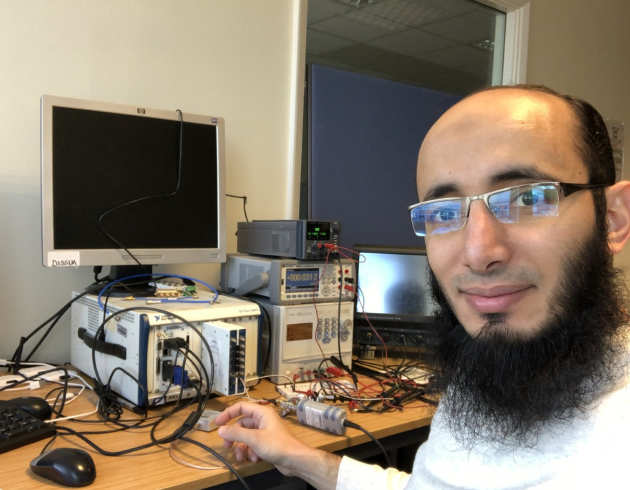 These engineer profiles are part of an earlier project, and some of our staff and students featured may have now left Imperial.
These engineer profiles are part of an earlier project, and some of our staff and students featured may have now left Imperial.
Dr Mahmoud Ouda is a Postdoctoral Research Associate, whose research involves using electromagnetic waves to charge devices remotely with no physical wires.
Wirelessly charged phones are already with us, and may save us from annoying tangles and misplaced cables, but the applications for this research are as wide as our imaginations. "Battery-less sensors will be able to perform amazing functions in smart homes, and smart health systems. For instance, using wearable and implantable battery-less devices that can sense temperature and body conditions and act to prevent potential risks, especially for the elderly and young children."
Mahmoud has far-reaching ideas about the future potential of wireless powered devices: “I'd dream of complete and efficient guidance of wireless energy in space, this would be a significant milestone in the wireless field.” Using drones for example, to re-charge equipment on Mars, could increase the lifetime of these billion-dollar missions.
The next generation
Mahmoud's parents were veterinary doctors: "but their perspective, like looking for home-made solutions, inspired our early engineering sense and encouraged all their children to become engineers: my elder sister as an architectural engineer, my brother as a civil engineer and me as an electronic engineer."
Engineering is about seeking solutions, so expect to be challenged every day to find the right answers through passion, curiosity, and critical thinking. "
Now Mahmoud is a mentor to other young people for Imperial CREST Academy, which provides scientific mentoring and support to help students aged 16–18 with the British Science Association CREST awards. The awards, dubbed the ‘Duke of Edinburgh Award in Science’, allow young people to plan and carry out long-term science projects with guidance from a professional scientist.
"I’ve mentored two groups of A-level 6th form students for the past two years, and run over 70 hours of research projects. Such programmes and interactions with high school students are effective steps to inspire the next generation of engineers."